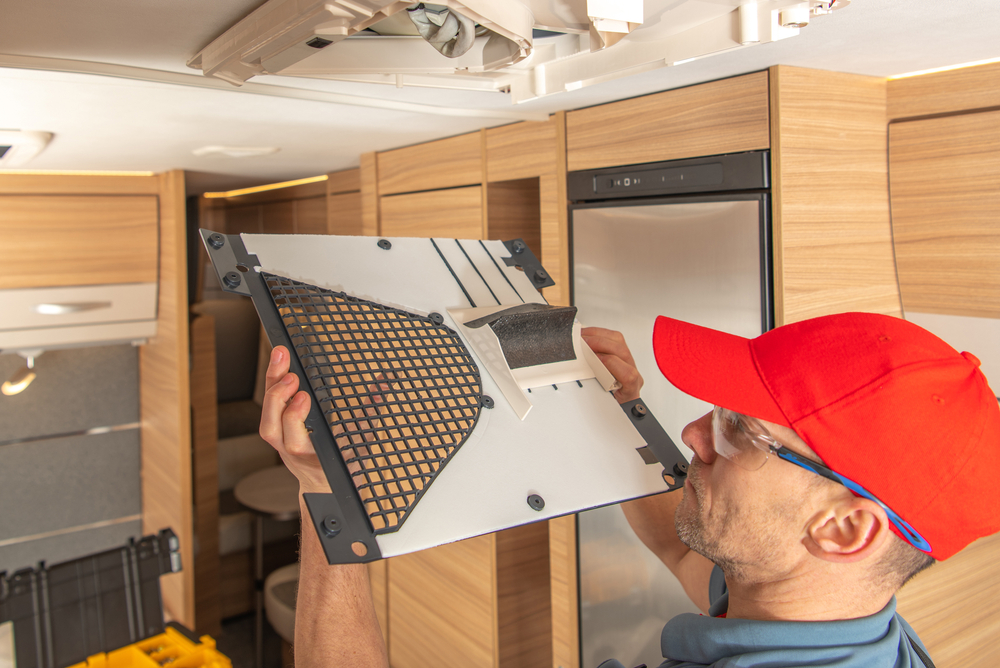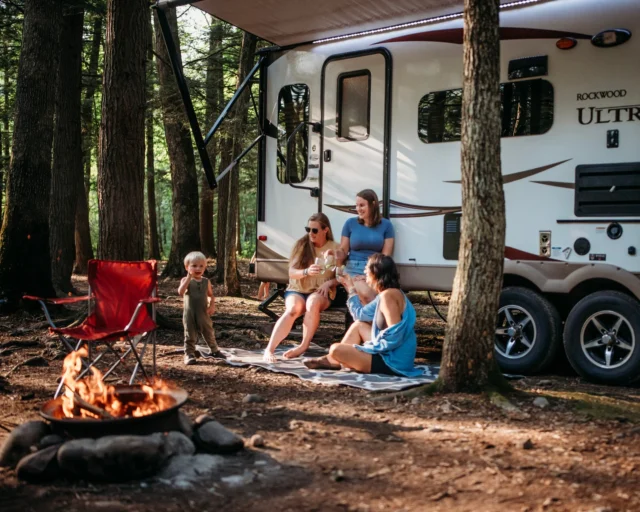
RV fuel efficiency is important to many people and for many reasons! Whether you’re trying to save money on gas, save time with fewer fill-ups, or save the environment with fewer emissions, this article will give you some tips for RV fuel efficiency.
The RV you rent, the way you pack it, and the condition of the tires are all considerations before you even hit the road. Once you’re on your trip, where and how you drive can also affect your RV fuel efficiency.
Here are nine tips to improve your RV fuel efficiency.
1. Rent a fuel-efficient RV
If fuel efficiency is important to you, keep it in mind when you’re renting or buying an RV. Generally speaking, the most fuel efficient RV is going to be the smallest one. Class B campervans are generally the most fuel efficient RV, Class C campers are next, and Class A large motorhomes will usually get the fewest miles per gallon. Trailers are the same, although the material used to build the trailer is also important. Lighter materials like aluminum will make your vehicle more fuel-efficient.
2. Reduce weight in the vehicle
Keeping less weight inside your RV will also improve its fuel efficiency. Use an RV checklist to pack lightly while still ensuring you don’t forget anything essential. Consider how many groceries you need and what you can pick up along your route to avoid carrying it the entire way. If you’re bringing big items like paddleboards or ATVs, consider whether you might rent them on-site to reduce weight in your RV on your drive.
3. Reduce drag
Don’t use roof racks or put other items like kayaks or paddleboards on top of your campervan or RV. Those items can create drag while you’re driving and reduce your RV fuel efficiency.
4. Check tire pressure
One of the best ways to improve your RV fuel efficiency is to make sure your RV tires are properly inflated. If you’re renting an RV, check the tire pressure as you’re going over the entire rig. If you’re using your own RV, check them before heading out on your trip. Making sure your tire pressure is correct can also reduce the wear and tear on your tires and wheels, leading them to last longer as well, and saving even more money.

5. Perform regular maintenance
Get regular maintenance checks (or do them yourself) to make sure your RV fuel efficiency is at its best. Maintenance checks will show if you have a dirty air filter, a faulty sensor, or another issue that can reduce your fuel economy.
6. Check your oil
Making sure your oil is at the correct level improves your engine efficiency and ensures you’re using less fuel to operate your RV. Check that the oil is between the minimum and maximum levels using a dipstick. If you need to add oil, use synthetic motor oil for the best fuel economy.
7. Check your air conditioning
Make sure your air conditioner filters are routinely changed to keep it operating most efficiently. Also, when you can, turn the air conditioning off altogether. Using the air conditioning can strain the engine and increase fuel consumption.
8. Plan your route
Idling in an RV can increase fuel consumption, so if you can, avoid rush hour as you drive. Keeping a steady speed can help with RV fuel efficiency, so plan to use cruise control when you’re able. As you plan your route, you can also map out the best way to reach your destination in the fewest miles.
9. Drive thoughtfully
Accelerating quickly from a stop can also reduce your RV’s fuel economy. Also, keeping your speed under the maximum speed limit can make your RV more fuel-efficient. It’s also safer – trying to stop in a heavier vehicle like an RV requires a lot more time than in a small car. The faster you’re going, the harder it will be to stop.
Improving your RV fuel efficiency can help you to reduce costs on your trip. It allows you to stop less along the way. And it helps the environment as well.
You can learn even more about RV gas mileage as you plan your trip. And, with a little planning and careful driving, you can improve your RV fuel efficiency on all of your future trips.






